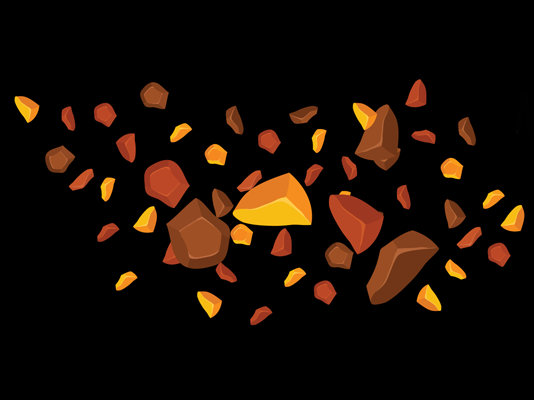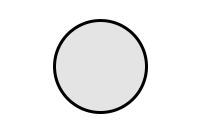Your Weight in Space
What would you weigh on other objects in the Solar System? Enter your weight on Earth below and press calculate to find out!
The calculations above are based on the effect that gravity has on your mass at the surface of each of the objects. This is assuming that you can actually get to the objects and stand on them which, in most cases, you can’t! If you landed on Venus, you’d be instantly cooked and crushed by its extreme heat and surface pressure. The Sun and the outer planets (Jupiter, Saturn, Uranus and Neptune) don’t actually have solid surfaces as they are just balls of gas, so you’d just sink into them. Instead we just have to use our imagination and pretend we can do such things. In an attempt to explain how your weight changes depending on your mass and the gravity at each of these objects, here is our wonderful guide to mass, weight and gravity, which we’ve chosen to call Mass, Weight and Gravity as it seemed quite fitting.
Every object has mass. Mass is a measurement of how much stuff is inside an object and how densely packed together it is. You could have a bowling ball and a balloon of the same size. As they're the same size, they have same amount of space inside them, but while the bowling ball is full of metals, the balloon is full of air. The particles inside metals are more closely packed than they are in air. An object that contains more closely packed materials is said to be more dense. An object of the same size but containing more densely packed things will feel heavier and is said to have a greater mass. Mass is not always linked to size. As an example, Saturn is so large that 700 Earths could fit inside it, but Saturn is only 98 times more massive than Earth as its contents are less dense. Earth contains lots of rocks and metals, whereas Saturn is made up mostly of hydrogen and helium which are very light gases.
For people living on Earth, the object with the greatest mass is Earth itself. People also have a mass as their bodies are full of all kinds of things.
Objects with mass attract other objects with mass towards them. When you stand on Earth, Earth pulls you down towards it but you also pull Earth up towards you. This action of two objects with mass pulling towards each other is called gravity. Weight is a measurement of the gravitational pull between the objects.
Although objects with mass pull towards each other, the object with the greater mass has the greater influence. This causes objects on Earth to cling to its surface or to fall to it if dropped from a height. It’s the reason why you can’t launch yourself off into space just by jumping! Gravity pulls you back down.
The mass of an individual object is the same wherever it is. This is because the contents inside the object remain the same. A 3 kilogram bowling ball on Earth is still a 3 kilogram bowling ball whether it’s on the Moon, on Mars or at Jupiter. What is different is the mass of the Moon, Mars and Jupiter. This alters the gravitational pull that the these worlds have on the bowling ball. The Moon and Mars have less mass, so pull less on the bowling ball. The ball will still rest on their surfaces, but the reduced gravity means that they will be much easier to lift from the surface. And they’ll be much easier to throw into the sky. So, although the ball still has a mass of 3 kilograms, it would feel lighter and weigh less. Jupiter has a greater mass and its gravitational pull is just over twice as strong as it is on Earth. This would cause a 3 kilogram bowling ball to feel like it weighs almost 7 kilograms on Jupiter.
On Earth, mass and weight have the same values even though they are scientifically different things. If you have a mass of 100 kilograms on Earth, you are also said to weigh 100 kilograms. A set of scales measures how much force you are putting on them as Earth’s mass and your mass pull towards each other. This provides you with your weight. If you were to take that set of scales to Mars and stand on them, you would still have a mass of 100 kilograms but the force between you and the surface of Mars would be reduced, so your weight there would be about 38 kilograms.





